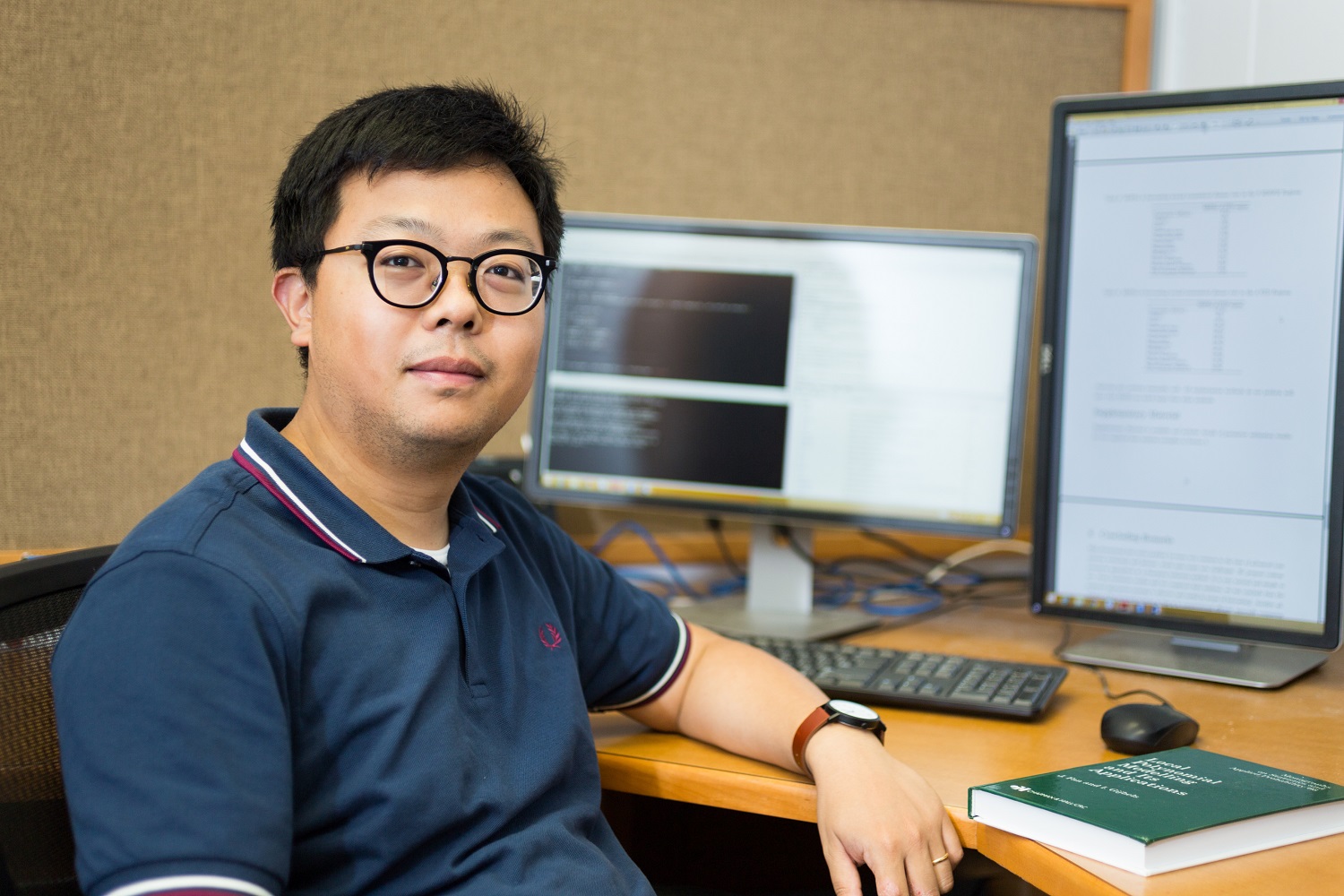Pursuing a PhD involves years of commitment and dedication. Fox Research took some time to reflect with Zeda Li, a fifth-year PhD candidate in the Statistical Science Department, as he comes closer to receiving the title of “doctor.” Find out more about his experiences avoiding burnout, publishing in journals, and life after dissertations.
Congratulations on nearing the end of your doctoral degree. How do you reflect on your time at the Fox School?
Our cohort in the Statistical Science Department was great! We all started together in our required courses and we continued working together every day—whether it was for homework, tests, or any questions. The faculty in my department has been very helpful, as well. For example, I am working with Dr. Yuexiao Dong, even though we are in completely different fields. Dr. Zhigen Zhao was able to show me new material through computing clusters. When I was preparing for my job interviews, Dr. Cheng Yong Tang scheduled several rehearsal talks so that faculty and students from the department could give me feedback.
You recently authored a paper that was accepted for publication in the Journal of the American Statistical Association. It is rare to see a PhD candidate as a first author, much less a journal of this caliber. What was your experience producing the paper?
I never thought my dissertation could be accepted into an A-level journal, but I think this is why you need advisors because they have more perspective with what kind of research can be highly regarded enough to be published. This paper was supervised by Dr. [Robert] Krafty, and of course, Dr. [William] Wei gave useful feedback. I was also able to attend the Joint Statistical Meeting, which is the largest annual statistic meeting. I was able to get a lot of great feedback prior to the publication of the paper.
How have you seen your work have real-world impact?
I am working with Dr. Krafty on a grant investigating the time-series data that measures patients during different medical experiments—specifically sleep data experiments. We are trying to understand why brain signals occur while patients are sleeping by looking into the relationship between those signals and the characteristics of these patients. This will help inform doctors how they should treat patients, especially those with insomnia, dementia, Alzheimer’s disease, and the elderly who may be stressed—all of which can affect sleep patterns.
What advice to you have for other doctoral students?
From my experience, the most important thing is time management. I do not spend all my time studying and researching. I do research but I also like to watch sports, go to Philadelphia 76ers’ games, and play soccer. You have to do things in an efficient manner with balance. Once you work, you pay attention. Once you play, you can forget about your research for a while. It is important to have balance.
Learn more about Fox School Research.
For more stories and news, follow the Fox School on LinkedIn, Twitter, Facebook, and Instagram.

